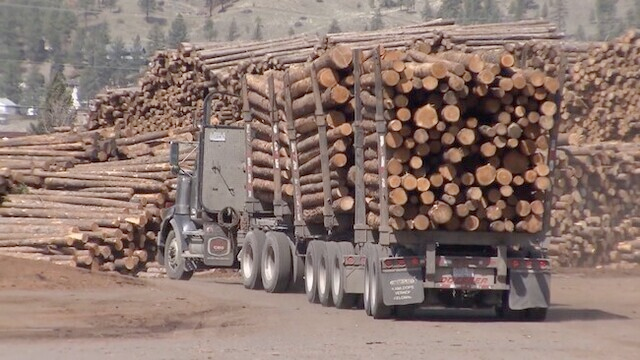A closer look at how BC is doing with its climate change targets.
- FTFO
- Aug 22, 2025
- 4 min read

Janet Parkins - Aug 19, 2025
Last month, in the first of this two-part series, columnist Janet Parkins examined Clean B.C.’s targets, gave an overall progress summary and looked at the first four categories and their grades. Here are the final six categories and my conclusions.
5. Leave no one behind—Minor progress
• The climate emergency continues to deepen existing inequalities for the most vulnerable in our communities. To minimize human suffering, we must prioritize climate action in ways that promote equity, anti-racism, and social justice; support those that have been directly affected; and implement the Declaration on the Rights of Indigenous Peoples Act.
• A new study of the 2021 heat dome—which killed 619 people in B.C.— revealed poverty and poor health increased the risk of mortality. Climate change is a public health crisis, and doctors warn that B.C.’s LNG industry is fuelling impacts across the province that increase healthcare costs and reduce access to care.
• B.C. needs a comprehensive plan for a just transition away from fossil fuels, and an independent health impact assessment of fossil fuel infrastructure.
6. Protect and restore nature–Minor progress
• The 2023 Tripartite Framework Agreement on Nature Conservation between the federal government, the B.C. government and the First Nations Leadership Council outlines a pathway towards protecting 30% of lands across the province. Achieving that will require adding two million to three million hectares of new protected areas per year over the next five years, close to 10 times more than in 2024. A first progress report is overdue.
• Progress on B.C.’s promise to fully implement the Old Growth Strategic review—including enacting biodiversity and ecosystem health legislation has stalled.
7. Invest in local, organic, regenerative agriculture and food systems—Minor progress
• Climate change is a major threat to food security in British Columbia. Heatwaves, deep freezes, floods, severe drought, extreme storms and wildfires damage crops and harm livestock. Warmer stream temperatures and low water levels impact salmon spawning and increase ocean acidification that impacts coastal fisheries.
• While some progress has been made to invest in local organic and regenerative agriculture and food systems, ongoing and systemic inequality remains.
8. Accelerate the transition to zero emission transportation—Minor progress
• Transportation is the largest source of greenhouse gas emissions in B.C. at 36.2%, increasing by 5% in 2022 and by 16% compared to 2007. Emissions from passenger vehicles decreased by 0.8%, freight increased by 36% and aviation/marine freight increased 110%.
• B.C.’s legislated target is for all new light-duty vehicles to be electric by 2035. Highway expansion increases traffic. Greenhouse gas emissions reduction is possible if we reallocate funding from highway expansion to public transit and active transportation.
9. Accelerate the transition to zero emission buildings—Minor progress
• Buildings are the source of 14.6% of B.C.’s total greenhouse gas emissions, primarily from using fossil fuels to heat space and water. While local governments lead by eliminating fossil fuel heating from new buildings, FortisBC targets elected officials with disinformation. We need a province-wide policy to eliminate the use of fossil fuels in new buildings and retrofit existing buildings.
• FortisBC reported 9,664 new customers in 2023, while 9,586 households claimed the B.C. government’s heat pump rebate, maintaining the same number of buildings using gas heating. If those trends continue, B.C. will not meet its 2030 building emission reduction targets.
• FortisBC offers rebates of $10,000 for dual-system electric heat pumps with gas back-up to incentivize customers to commit to gas. All rebates for gas appliances must be discontinued.
10. Track and report progress on these actions annually—Fail
• B.C.’s 2023 Climate Change Accountability Report confirmed B.C. is still not on track to meet its climate targets in 2025 and 2030.
• The province has been consistently late sharing annual greenhouse gas emissions data which complicates meeting near-term targets. Currently the delay is close to two years. That hampers our ability to correct course to ensure we meet B.C.’s climate targets.
• The B.C. Supreme Court found the provincial Climate Change Accountability Act does not require the government to tell British Columbians whether B.C. is on track to achieving its climate targets and B.C.’s climate accountability legislation is not clear enough to outline the information necessary for the public to track progress and hold the government accountable.
The 2024 Co-operation and Responsible Government Accord between the B.C. NDP and B.C. Green Party is a good first step but fails to address the fact the province continues to subsidize and expand new fossil fuel infrastructure at the expense of present and future generations.
Greenhouse gas emissions released now and over the next 10 years will determine the severity of the climate crisis for future generations.
Scientists warn that the pace and scale of climate action are insufficient to tackle climate change and worsening existing inequalities. Everything we love is at risk.
We already know what we need to do—stop burning fossil fuels. The solutions we need already exist.
All we need is the political will to implement them.




Comments